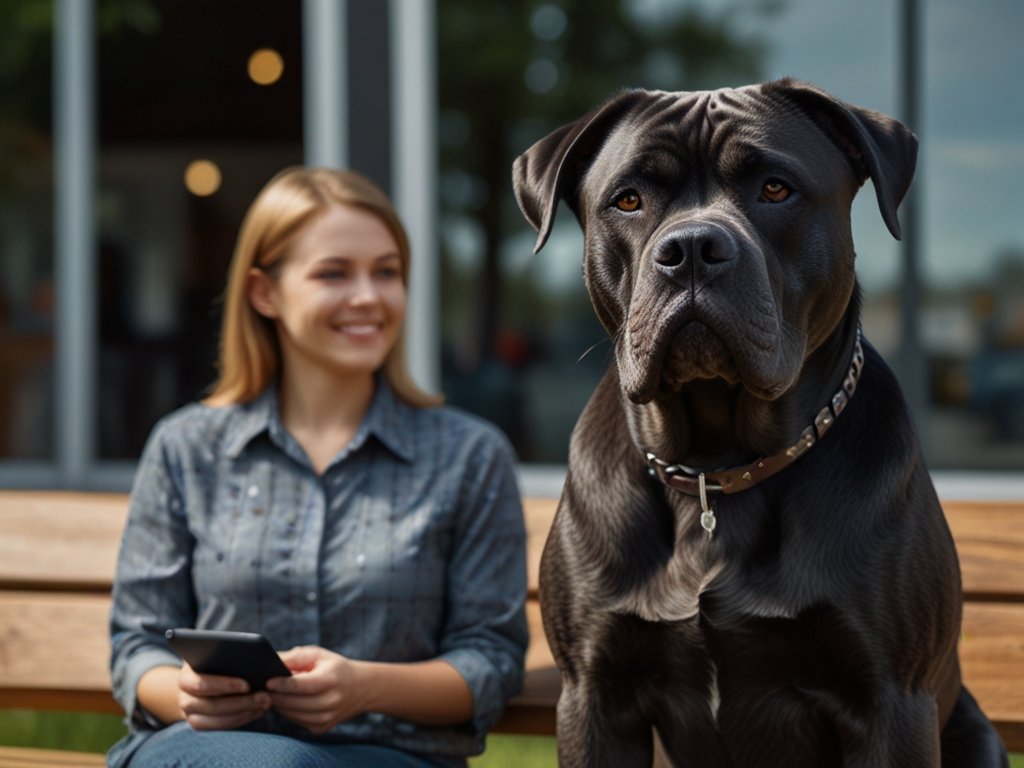As a veterinarian and responsible Cane Corso breeder with over two decades of experience, I'm thrilled to guide you through the fascinating world of this majestic Italian breed. In this comprehensive exploration, we'll uncover the myths and realities about Cane Corsos, separating fact from fiction. Whether you're considering bringing a Cane Corso into your family or simply curious about these gentle giants, you're in for an enlightening journey that will transform your understanding of the breed.
- The Origins and History of Cane Corsos
- Myth vs. Reality: Cane Corso Temperament
- Physical Characteristics: Separating Facts from Fiction
- Training and Socialization: Addressing Common Misconceptions
- Cane Corsos as Family Dogs: Debunking the Myths
- The Rise of the Cane Corso in the USA
- Health and Lifespan: Facts vs. Misconceptions
- Exercise Needs: Dispelling Common Beliefs
- Cane Corso: Myths vs. Realities
- Conclusion: Embracing the True Nature of Cane Corsos
- Frequently Asked Questions
The Origins and History of Cane Corsos

Ancient Roman Roots
The Cane Corso's lineage traces back to ancient Rome, where these powerful dogs served as formidable war dogs and loyal companions. Their name, "Cane Corso," translates to "dog guardian" in Latin, reflecting their historical role as protectors.
Did you know? Cane Corsos are descendants of the ancient Roman Molossus dogs, prized for their strength and loyalty. In fact, the ancestors of the Cane Corso were used as war dogs by the Roman army over 2,000 years ago!
Near Extinction and Revival
Despite their illustrious history, Cane Corsos faced near-extinction in the mid-20th century. Thanks to dedicated breeders in Italy, the breed was revived in the 1970s. Today, they're cherished worldwide for their unique combination of strength and gentleness.
Interesting fact: The Cane Corso breed was on the brink of extinction in the 1970s but was saved through the efforts of passionate breeders in Italy. This revival led to the breed's introduction to the United States in 1988, marking a new chapter in Cane Corso history.
Myth vs. Reality: Cane Corso Temperament

Myth: Cane Corsos are Aggressive and Dangerous
One of the most persistent myths about Cane Corsos is that they're inherently aggressive. This misconception often stems from their imposing size and protective nature.
Reality: Loyal, Protective, and Gentle with Proper Training
In truth, Cane Corsos are known for their:
- Unwavering loyalty to their family
- Natural protective instincts
- Gentle demeanor with loved ones
- Calm and stable temperament
Key to their balanced personality is proper socialization and training from an early age. As with any large breed, responsible ownership is crucial.
Rising popularity: The Cane Corso's gentle nature, when properly trained, has contributed to its rising popularity. According to the American Kennel Club (AKC), the breed ranked 21st in popularity among all dog breeds in the United States in 2020, a significant jump from 32nd place in 2013.
Physical Characteristics: Separating Facts from Fiction

Myth: All Cane Corsos are Enormous
While Cane Corsos are indeed a large breed, there's a common misconception that they're all giants.
Reality: A Range of Sizes Within Breed Standards
Cane Corsos actually come in a range of sizes:
| Gender | Height Range | Weight Range |
|---|---|---|
| Males | 25-27.5 inches | 99-110 lbs |
| Females | 23.5-26 inches | 88-99 lbs |
Remember, a healthy Cane Corso is muscular and athletic, not overly bulky.
Size fact: An adult Cane Corso typically weighs between 88 and 110 pounds (40-50 kg), making it one of the largest breeds recognized by the AKC.

Myth: Cane Corsos are Untrainable
Some believe that Cane Corsos are too stubborn or independent to train effectively.
Reality: Intelligent and Eager to Please with Consistent Training
Cane Corsos are highly intelligent and eager to please their owners. They excel in training when approached with:
- Consistency
- Positive reinforcement
- Clear leadership
- Early socialization
Pro Tip: Start training your Cane Corso puppy as early as possible. Their intelligence makes them quick learners, but it also means they need mental stimulation to prevent boredom.
Cane Corsos as Family Dogs: Debunking the Myths
Myth: Cane Corsos are Not Good with Children
Due to their size and protective nature, some worry that Cane Corsos aren't suitable for families with children.
Reality: Gentle Giants with Proper Socialization
When properly socialized, Cane Corsos can be excellent family dogs:
- Patient and gentle with children
- Protective of their young family members
- Calm and stable in family settings
Always supervise interactions between dogs and young children, regardless of breed.
AKC recognition: The Cane Corso's suitability as a family dog contributed to its official recognition by the American Kennel Club in 2010, making it one of the more recently accepted breeds.
The Rise of the Cane Corso in the USA
1988
First Cane Corsos arrive in the USA
2010
Officially recognized by the AKC
2013
Ranked 32nd in popularity among all dog breeds
2020
Climbs to 21st place in AKC breed popularity rankings
Health and Lifespan: Facts vs. Misconceptions

Myth: Cane Corsos Have Short Lifespans
Large breeds often face misconceptions about their longevity.
Reality: Healthy Lifestyle Can Promote Longevity
While Cane Corsos have an average lifespan of 9-12 years, many live longer with proper care:
- Regular veterinary check-ups
- Balanced diet tailored to their life stage
- Appropriate exercise
- Genetic health screening for breeding dogs
Lifespan note: The average lifespan of a Cane Corso is 9 to 12 years, which is slightly lower than the average of 10 to 13 years for large dog breeds. However, with proper care and attention to health, many Cane Corsos live beyond this range.
Exercise Needs: Dispelling Common Beliefs

Myth: Cane Corsos Require Constant Intense Exercise
Their muscular build often leads to assumptions about extreme exercise needs.
Reality: Moderate, Consistent Activity is Key
Cane Corsos thrive with:
- Daily walks (30-45 minutes)
- Playtime and mental stimulation
- Age-appropriate exercise (less intense for puppies and seniors)
Avoid over-exercising, especially in puppies, to protect their developing joints.
Cane Corso: Myths vs. Realities
❌Myth
Cane Corsos are aggressive and dangerous
✅Reality
Loyal, protective, and gentle with proper training
❌Myth
All Cane Corsos are enormous
✅Reality
Range of sizes: Males 99-110 lbs, Females 88-99 lbs
❌Myth
Cane Corsos are untrainable
✅Reality
Intelligent and eager to please with consistent training
❌Myth
Not good with children
✅Reality
Gentle giants with proper socialization
❌Myth
Require constant intense exercise
✅Reality
Moderate, consistent activity is key
Conclusion: Embracing the True Nature of Cane Corsos
As we've explored the myths and realities surrounding Cane Corsos, it's clear that this breed offers a unique blend of strength, loyalty, and gentleness. From their rich history dating back to ancient Rome to their role as loving family companions, Cane Corsos continue to capture the hearts of dog enthusiasts worldwide.
Understanding the facts behind the myths is crucial for potential owners and breed enthusiasts alike. By providing proper training, socialization, and care, you can experience the joy of living with these magnificent dogs.
Have you had experiences that challenge or confirm these Cane Corso myths? We'd love to hear your stories! Share your thoughts in the comments below and join our community of Cane Corso enthusiasts.
Ready to learn more about Cane Corsos? Explore our comprehensive guides on training, health care, and breed-specific tips. Don't forget to subscribe to our newsletter for the latest updates and expert advice on Cane Corso care!


Frequently Asked Questions
Are Cane Corsos good family dogs?
Yes, when properly socialized and trained, Cane Corsos can be excellent family dogs. They are loyal, protective, and gentle with their family members, including children. However, due to their size and strength, supervision is always recommended, especially with young children.
How big do Cane Corsos get?
Cane Corsos are a large breed. Adult males typically stand 25-27.5 inches tall and weigh 99-110 pounds. Females are slightly smaller, standing 23.5-26 inches tall and weighing 88-99 pounds. Their muscular build makes them appear quite imposing.
Are Cane Corsos easy to train?
Cane Corsos are intelligent and eager to please, which can make them relatively easy to train for experienced dog owners. However, they require consistent, firm, and positive training methods. Early socialization and obedience training are crucial for this breed.
How much exercise does a Cane Corso need?
Cane Corsos require moderate, consistent exercise. A daily 30-45 minute walk, combined with playtime and mental stimulation, is typically sufficient. However, exercise needs can vary based on the dog's age and individual energy levels.
What is the lifespan of a Cane Corso?
The average lifespan of a Cane Corso is 9 to 12 years. With proper care, nutrition, and regular veterinary check-ups, some Cane Corsos may live beyond this range.
Are Cane Corsos aggressive?
Cane Corsos are not inherently aggressive. Their protective nature can be mistaken for aggression, but with proper training and socialization, they are typically calm and stable. Any dog, regardless of breed, can show aggression if not properly trained or socialized.
Do Cane Corsos like to cuddle?
While individual personalities vary, many Cane Corsos enjoy being close to their family members. They may not be lap dogs due to their size, but they often enjoy physical affection and can be quite loving with their families.
Are Cane Corsos bigger than Rottweilers?
Cane Corsos and Rottweilers are similar in size, but Cane Corsos are generally slightly taller and leaner. Rottweilers tend to be more stocky and heavy-set. The size difference can vary between individual dogs.
At what age is a Cane Corso fully grown?
Cane Corsos typically reach their full height by 12-18 months of age. However, they may continue to fill out and gain muscle mass until they are about 2-3 years old.
Are Cane Corsos stubborn?
Cane Corsos can be strong-willed, which some may interpret as stubbornness. However, their intelligence and eagerness to please usually mean they respond well to consistent, positive training methods.
What is the best way to train a Cane Corso?
The best approach to training a Cane Corso includes:
- Early socialization
- Consistent, positive reinforcement
- Firm but gentle leadership
- Regular obedience training sessions
- Mental stimulation through training games and exercises
Can Cane Corsos be left alone?
While Cane Corsos form strong bonds with their families and prefer company, they can be trained to tolerate being alone for reasonable periods. However, they are not suited to being left alone for extended periods regularly.
Do Cane Corsos need a lot of space?
Cane Corsos can adapt to various living situations, but they do best with some space to move around. A house with a secure yard is ideal, but they can adapt to apartment living if given sufficient exercise and mental stimulation.
What health problems do Cane Corsos have?
Like many large breeds, Cane Corsos can be prone to certain health issues, including:
- Hip dysplasia
- Elbow dysplasia
- Bloat (gastric dilatation-volvulus)
- Eye problems such as entropion or ectropion
- Heart conditions like dilated cardiomyopathy
Regular vet check-ups and health screenings can help catch and manage these issues early.
How can I make my Cane Corso live longer?
To potentially extend your Cane Corso's lifespan:
- Provide a balanced, high-quality diet appropriate for their age and size
- Ensure regular exercise and maintain a healthy weight
- Schedule regular veterinary check-ups and stay up-to-date on vaccinations
- Provide mental stimulation through training and interactive toys
- Maintain good dental hygiene
- Spay or neuter your dog (consult with your vet about the best time for this)
- Provide a loving, stress-free environment
Remember, while these measures can promote health and longevity, individual genetics also play a significant role in a dog's lifespan.


Leave a Reply